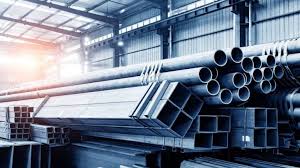Add your promotional text...
Steel Stocks Surge as Anticipated Chinese Stimulus Fuels Market Optimism
Synopsis: Major steel stocks, including Tata Steel, JSW Steel, and Vedanta, saw gains following expectations of a significant fiscal stimulus from China aimed at revitalizing its slowing economy. With China’s massive steel industry influencing global prices, Indian steelmakers could see relief from low-cost Chinese imports if domestic demand in China rises. The expected $283 billion stimulus package could provide a much-needed boost to both the Chinese and global steel markets.
VIEWS ON NEWS
By Monika Agarwal
10/11/20243 min read


The global steel market saw renewed optimism on Friday as major steel stocks, including Tata Steel, JSW Steel, Vedanta, the Steel Authority of India Limited (SAIL), and Jindal Steel and Power, experienced notable gains. This rise in stock prices was driven by expectations that the Chinese government will introduce further fiscal stimulus to support its slowing economy.
China's Anticipated Economic Boost
According to a report from Bloomberg, China is poised to unveil additional measures aimed at stimulating its economy during a policy briefing scheduled for the weekend. Experts anticipate that the Chinese finance minister may announce a significant fiscal stimulus package, rumored to be around $283 billion (approximately ₹23.4 lakh crore). The Chinese government has been grappling with a variety of economic challenges, including sluggish consumer spending, a downturn in the real estate sector, and the financial struggles of local governments. These issues have collectively slowed the pace of economic growth, reducing domestic demand for crucial materials like steel.
Performance of Indian Steel Stocks
The optimism surrounding the potential for Chinese fiscal stimulus translated into immediate gains for Indian steel stocks on Friday. Tata Steel saw its shares rise by 1.53%, closing at ₹162.16. JSW Steel experienced a 1.13% increase, reaching ₹1,018.80, while Vedanta’s shares grew by 1.33% to ₹499.05. SAIL also recorded a gain of 2.05%, bringing its stock price to ₹132.63. Jindal Steel and Power led the way with the highest increase, surging 2.28% to close at ₹1,013.30.
The market response highlights how closely the global steel industry is linked to China's economic policies. China is the world's largest producer and consumer of steel, meaning its economic activity has a direct impact on steel prices and demand globally. When China's economy is strong, demand for steel rises, which benefits steel producers worldwide. Conversely, when China’s economy slows, its steel producers often turn to exporting surplus steel at lower prices, which can hurt steelmakers in other countries by forcing them to lower prices to remain competitive.
Recent Measures Taken by China’s Central Bank
In September, China’s central bank took steps to address some of the financial challenges facing the country. It announced a 50 basis points cut in the reserve requirement ratio (RRR) for banks. This move, which reduces the amount of money that banks are required to hold in reserves, is intended to inject more liquidity into the economy. By allowing banks to lend more freely, the central bank hopes to stimulate economic activity and ease the financial strains facing businesses and consumers.
However, these measures have not been sufficient to fully offset the broader economic slowdown. The collapse of a once-booming real estate market, coupled with the burden of heavy debt on local governments, has continued to dampen consumer spending and investment. The weakened infrastructure sector, in particular, has resulted in lower domestic demand for metals like steel, exacerbating the struggles of Chinese steel manufacturers.
The Impact on the Global Steel Market
China's economic difficulties have far-reaching effects, particularly for steel-producing nations like India. As China’s domestic demand for steel has declined, its steel manufacturers have increasingly turned to exporting their products at lower prices. This practice, often referred to as “dumping,” has flooded international markets with cheap steel, including in India. Indian steelmakers, facing intense competition from these low-cost imports, have been forced to reduce their own prices, which negatively impacts their profit margins.
The anticipation of additional Chinese stimulus is raising hopes that the country’s demand for steel will rebound. A revival in domestic consumption could reduce the need for Chinese steel producers to export their surplus at cut-rate prices, which would relieve some of the downward pressure on steel prices in other markets. For Indian steel companies, this could mean an improvement in pricing power and profitability.
Looking Ahead
As the world awaits the outcome of China's weekend policy briefing, the potential for a massive fiscal stimulus package is providing a sense of optimism in the steel industry. Should the Chinese government follow through with the anticipated $283 billion stimulus, it could help reignite demand for steel and other materials, providing a boost to global steelmakers.
For Indian steel companies like Tata Steel, JSW Steel, Vedanta, SAIL, and Jindal Steel and Power, this could represent a turning point. After months of grappling with falling prices and squeezed margins due to cheap Chinese steel imports, these companies may soon see an improvement in their competitive position.
In the meantime, the markets will continue to closely monitor developments in China, as the health of the global steel industry remains tightly intertwined with the economic fortunes of the world’s second-largest economy. Whether this anticipated stimulus will be enough to counteract the broader challenges facing China remains to be seen, but for now, investors are betting that the Chinese government’s actions will provide a much-needed lift to both the domestic and global steel markets.
